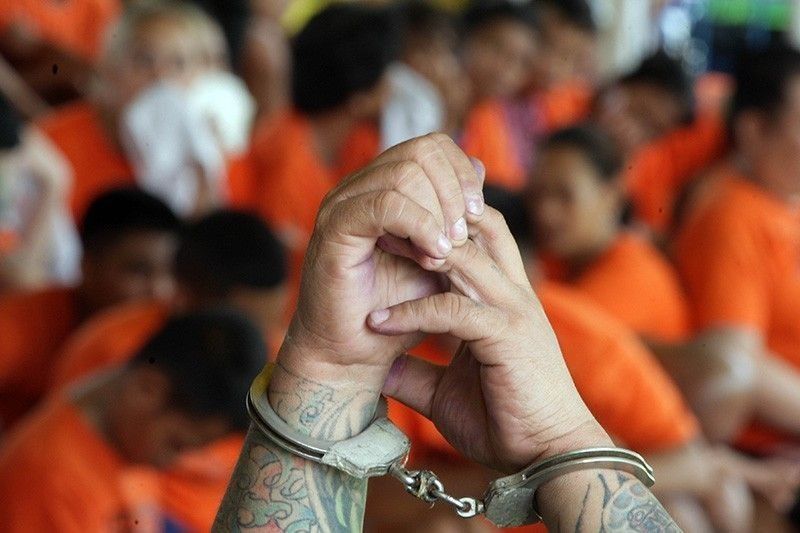FLAG lawyer: No place in imperfect justice system for 'absolute' punishments like death penalty

MANILA, Philippines — A punishment as "perfect" and absolute as death penalty has no place in a justice system that is far from perfect, Free Legal Assistance Group rights lawyer Theodore Te said.
President Rodrigo Duterte, in his State of the Nation Address in July, again urged Congress to revive the death penalty, a proposal that the president had to prompt the audience at the House of Representatives to applaud.
“It (death penalty) is the most perfect, most absolute, final penalty but it... exists within a system that is far from perfect, far from near perfect,” Te, also a constitutional law professor, said in a webinar on Wednesday entitled “Bringing Death (Penalty) Back to Life?”
Human Rights Commissioner Karen Gomez-Dumpit agreed with Te as she stressed: “No justice system is perfect in any country. There should not be any perfect punishment for a justice system that cannot render perfect justice,”
Citing a study from FLAG, Dumpit added that there is “disproportionality on imposing these laws against the poor.”
Duterte has been vocal about wanting to reinstitute capital punishment in the country, but the CHR and lawyers groups aired strong opposition to this.
Costly defense
The court system in the Philippines already has inherent inequality, Te said.
The rights lawyer explained that mounting the defense of someone charged with a crime punishable by death penalty takes a lot of resources and many from when the Philippines had capital punishment did not have those resources. Few have them now if death penalty is brought back.
"Many of those on death row did not have the type of legal defense," Te said. He also shared that FLAG then worked with lawyers from the Public Attorney’s Office, whom he said were all excellent and hard working, but had full dockets involving cases punishable by death penalty.
He shared that defense lawyers also have to gather resources for investigation, for the evidence at hand, and for equalling the resources of the prosecution, which sometimes would even have a private prosecutor.
Improve justice system instead
FLAG chairman Chel Diokno, in a House panel hearing in August, said that a survey they conducted in 2004 showed that 73% of death row inmates were poor and were illiterate or did not receive much education. Eighty-one percent of convicts had low-income jobs before they were arrested, prosecuted and sentenced.
Lawyer Mary Catherine Alvarez of StreetLawPH, for her part said the government must instead focus on “trying to improve the criminal justice system first instead of adding to the burdens of the criminal justice system by re-imposing a penalty that is so finite, so final.”
StreetLaw PH helps vulnerable people, including those involved in drug cases. She added that most of those detained in drug cases are poor and are street-level sellers. They also resorted to peddling drugs out of sheer desperation, she said.
Eduardo Agbayani case
Te also recounted a case involving a person who was not guilty of the offense he was convicted of. The complainant and witness testified against her father and accused him of raping her, but later came forward to say that her father was guilty of another offense.
The complainant wanted to recant her testimony after she found out her father may be executed but she was afraid of being charged with perjury, or lying in court, and opted to stand by her accusation.
Just before the execution was carried out, she admitted that she was not raped by her father, “but the execution carried on.”
“So, actually, there is a documented instance of a person who probably had reasonable doubt about his guilty but well we can’t go back anymore,” he said.
Te was referring to the case of Eduardo Agbayani who, according to a report by the New York Times in 2000, was also supposed to be granted a pardon from then-President Joseph Estrada but the pardon came too late.
"That happened: Witnesses can lie. Evidence can be fabricated but once death penalty is carried out, it can never be taken back," Te added.
- Latest
- Trending


































